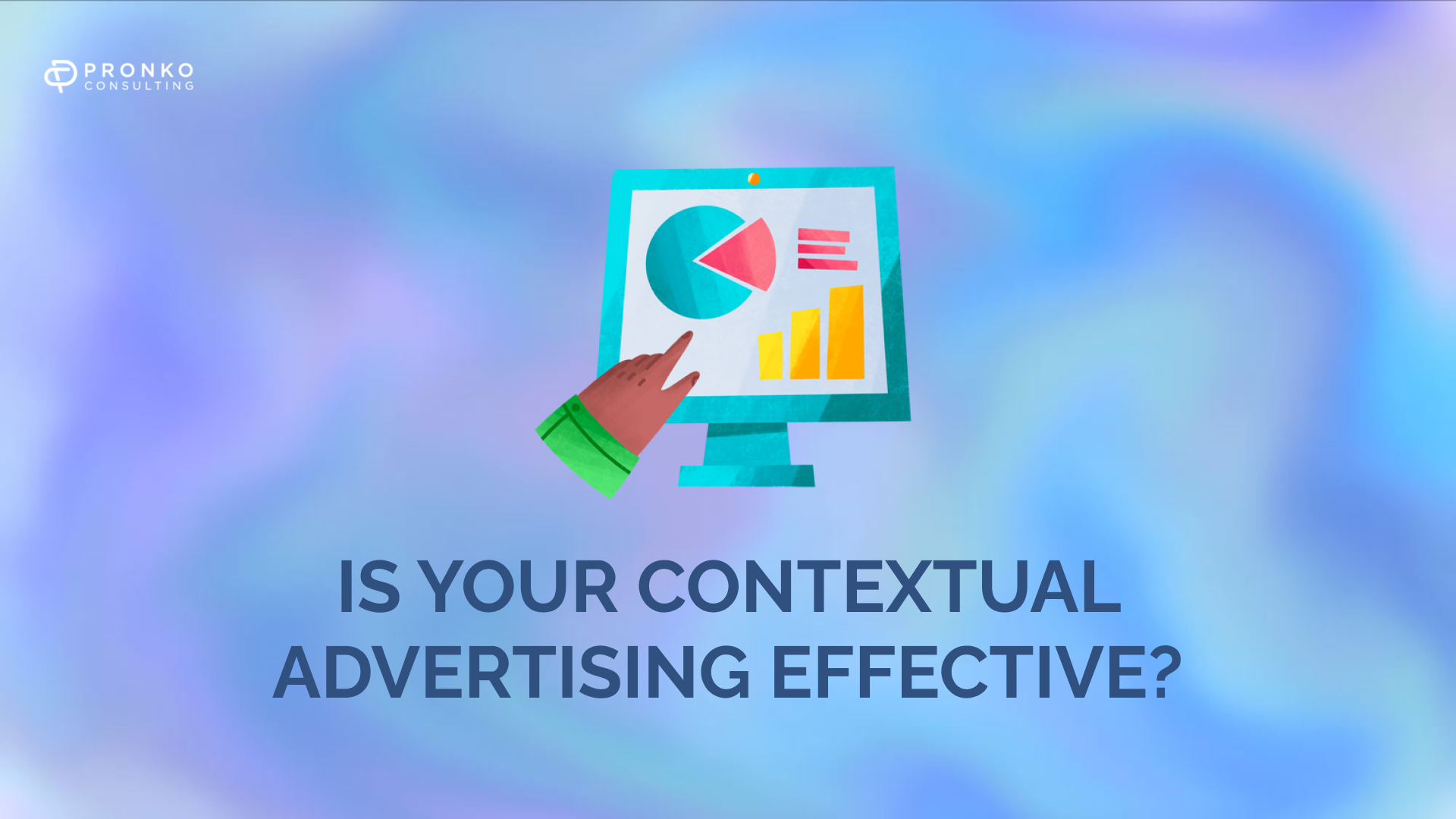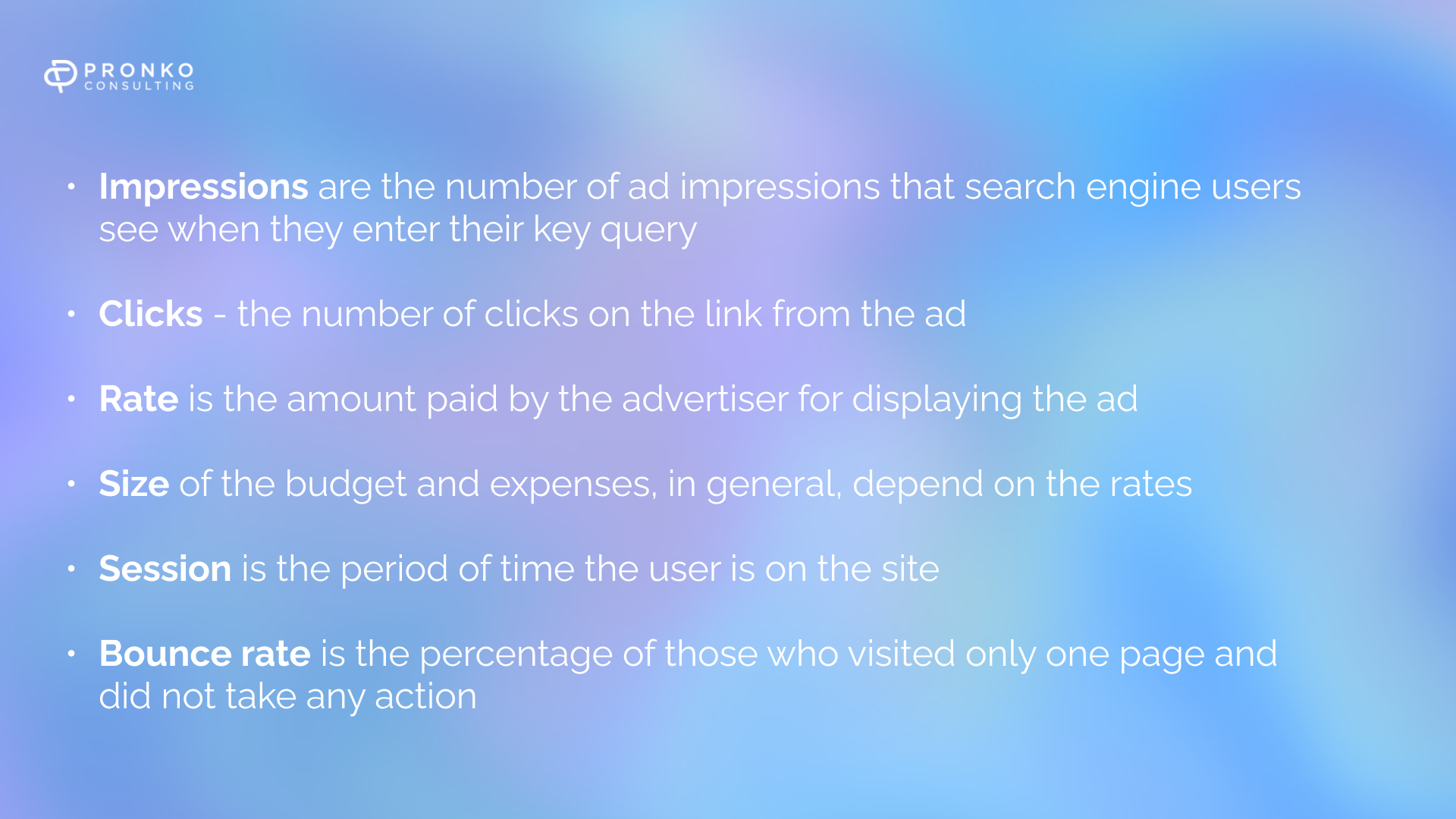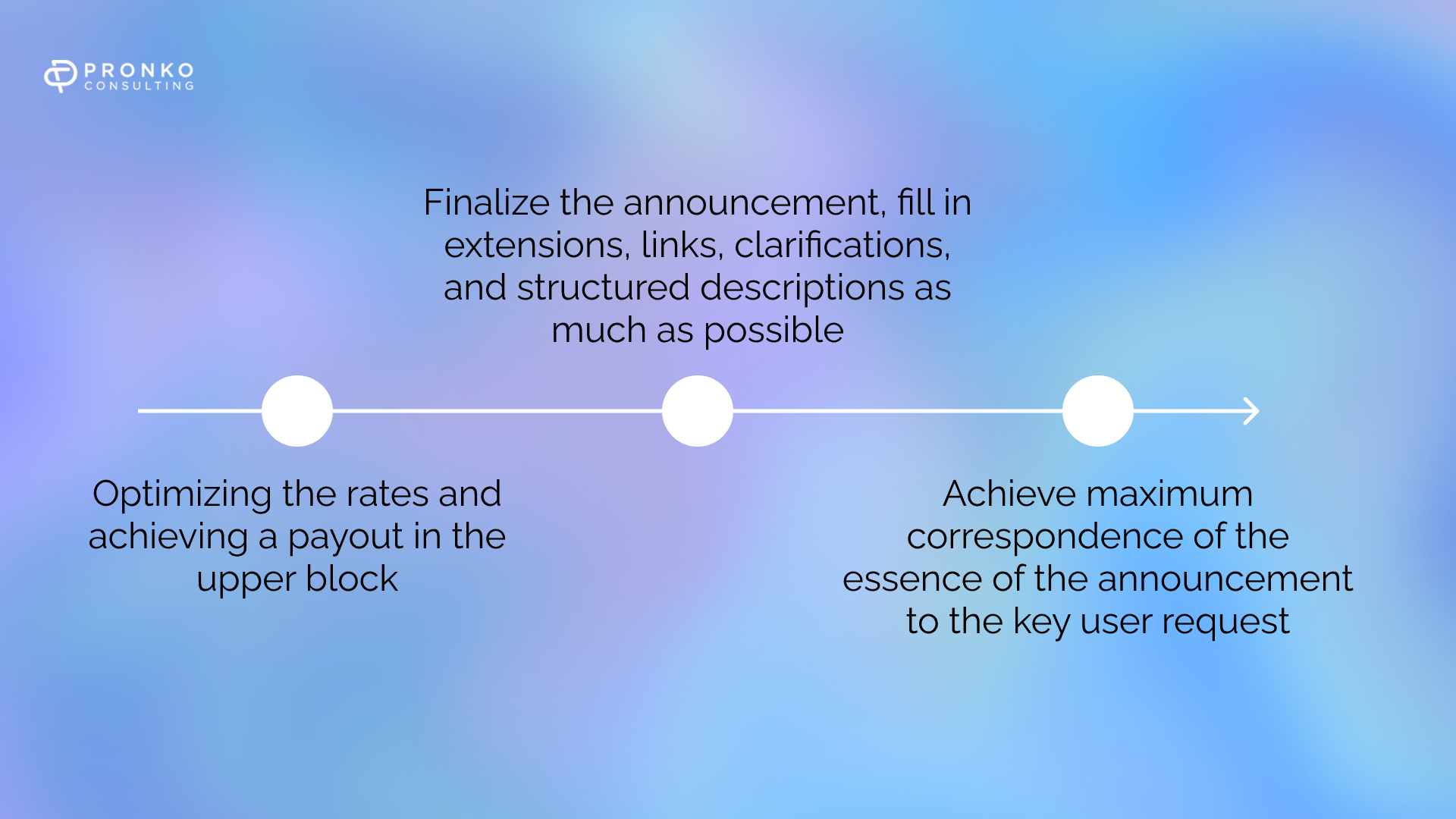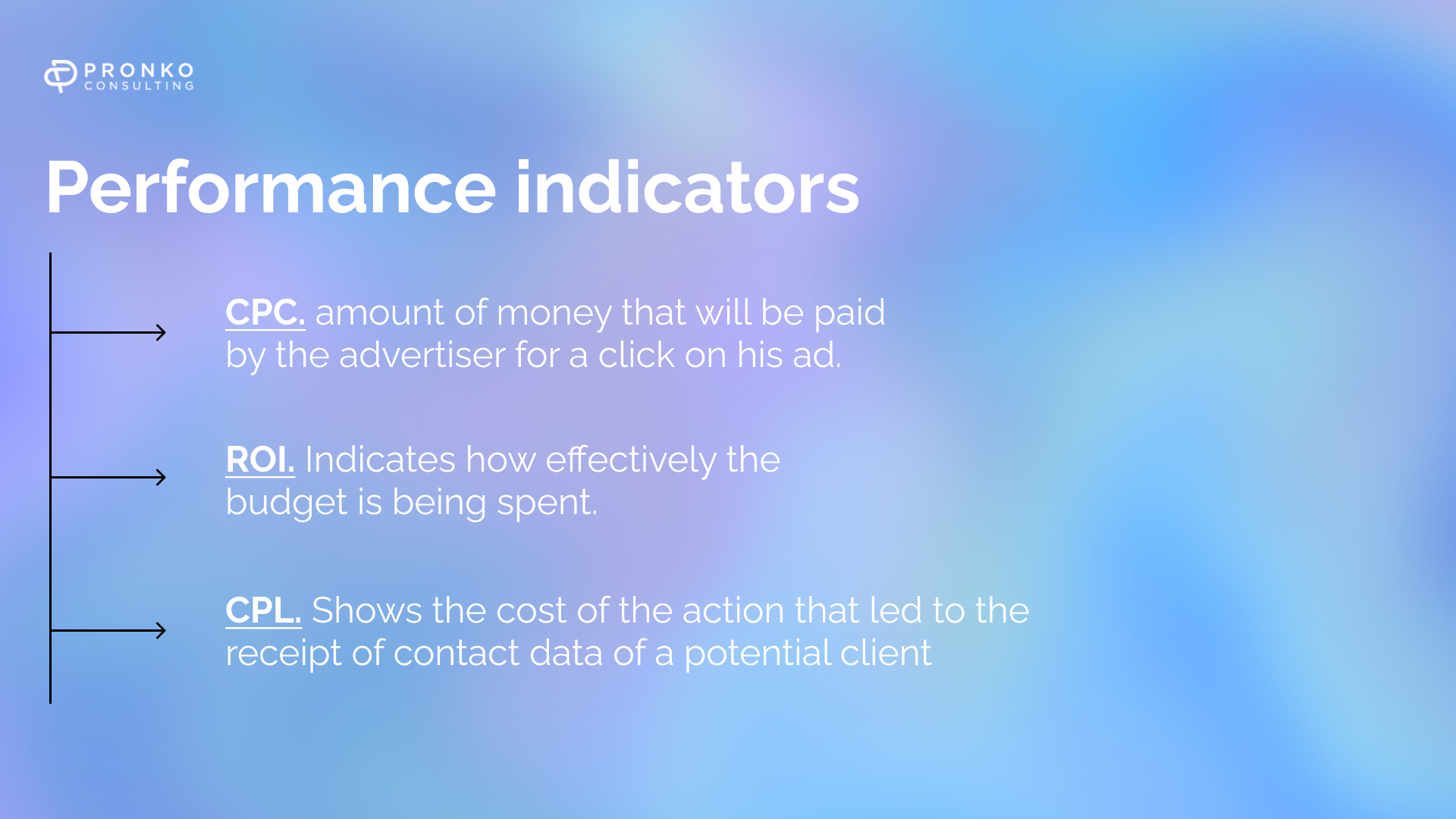
Online promotion includes a whole range of activities. One of the effective methods is contextual advertising. Its main advantages are the ability to quickly launch and obtain results already at the beginning of the campaign. But creating an ad is only the first stage of working with the context. It is important to understand how effective it is and what results from it brings to the business. In order not to "run down" the advertising budget, it is necessary to monitor indicators and make changes on time.
Evaluation of the effectiveness of contextual advertising
Preparation and launch of ads is the basic stage of work. To understand effectiveness, it is necessary to know and be able to use tools that allow you to evaluate the effectiveness of advertising measures. The advertising offices have everything you need for this. You need to understand how to work with data.
First of all, you need to know what evaluation and tracking criteria are used for this type of promotion. If we speak in general terms, it is:
- Costs for creating and conducting advertising campaigns
- The amount of profit they bring
To understand the issue, it is better to start with the basic concepts:

Ads in contextual advertising, CTR
CTR or clickability — indicates the ratio of the number of users who saw the ad and those who clicked on it and went to the site via the link. In translation, the abbreviation CTR is Click Through Rate. It should be taken into account that clicking on a link is not yet a purchase, and a large number of conversions without a transaction is not an effective indicator, rather, on the contrary, it indicates that the text of the advertisement does not meet the expectations of users, which leads to a "crowding" of the budget.
CTR allows you to understand which display platforms bring the most benefit. Such statistics are available in Google Ads reports. Correctly selected text, attractive presentation, and relevance of the information for the reader will give a good result. This benefit is mutual, both for the search engine and the advertiser. The site profits from high CTR, and the business from targeted traffic.
As a rule, the averaged clickability indicators are placed as follows:
- Up to 3% is low
- Up to 7% — average
- From 8 to 12% is sufficient
- Up to 20% — high
- More than 20% is optimal
When performing an efficiency analysis taking into account this parameter, it is necessary to take into account the position at which the ad appears in the search. Those at the top of the page tend to score higher than those at the bottom. In this regard, comparing the upper and lower output indicators will not be entirely correct.
To increase CTR, you need to:

Optimizing indicators will help to achieve not only an increase in clickability but also an increase in sales, which is the ultimate goal of advertising.
Conversion in contextual advertising
The criterion is also called CR - an abbreviation of the English conversion rate. It should be understood as the ratio of those who performed the target action to those who visited the resource. Indicators speak not only about the effectiveness of advertising but also the quality of the site as a whole.
Conversion depends on several factors:
- Usability and functionality of the site
- The level of competitiveness of the offer
- The quality of the audience and the correspondence of the offer to the target request
The value of CR depends on many indicators, therefore, it is difficult to determine the average percentage that can be considered successful. The more expensive the product or service, the lower the conversion rate, and vice versa. A range of 10-25% is considered a good indicator, but even with values of 3-5%, an advertising campaign, especially at its start, can be considered successful.
You can increase the percentage of conversions with the help of:
- Adjustment of ads that will optimally meet the requests of the target audience
- Developing an effective ad for each keyword phrase
- Work with the usability, design, and functionality of the landing page itself
- Analyzing the effectiveness of ads and adjusting them
In addition to conversion, the success of promotion through context can be evaluated by other parameters.
Performance indicators (ROI, CPC, CPL)
In addition to the parameters listed above, the following indicators are used to evaluate the quality of advertising campaigns.

CPC
Click cost estimation parameter, its price. In other words, the amount of money that will be paid by the advertiser for a click on his ad.
Many factors affect the cost of a click, including:
- The quality of the ad itself
- Relevance of the request
- Competitive activity on key requests
- Frequency of requests
- Subject
- Time of day
- Display region
The minimum price of a click on Google is $0.001.
ROI
One of the important indicators is the return on investment ratio or payback ratio. It is considered for every capital investment, including advertising.
Quite often, it is influenced by many factors together, and the final numbers will not be exact. However, ROI will indicate how effectively the budget is being spent.
It is calculated according to the formula: (income minus expenses) divided by income and multiplied by 100%.
This criterion depends on the quality of the collected data and their quantity. The more meticulous the collection of information will be, the more accurate the results of the analysis will be.
ROI is most effective for calculations in areas such as:
- Direct sales
- Loyalty programs
- Sales promotion
- Working with objections
CPL
One of the important methods of determining the performance of advertising campaigns. The cost of a lead (or Cost per Lead) shows the cost of the action that led to the receipt of contact data of a potential client (mail, link to a profile in social networks, phone numbers, etc.)
CPL is calculated using the formula: advertising costs divided by the number of leads.
Many factors affect the cost:
- Quality of advertising campaigns
- Conversion rate
- Cost per click
- CTR of ads
The optimal cost depends on the average check, customer lifetime (LTV), and operator conversions. Also, the field of business for which it is calculated should be taken into account. It is most relevant for those areas where it is necessary to obtain contact data in order to sell your product or service in the future.
Another parameter is the quality indicator, which is a general assessment of the entire advertising company. The higher the relevance of the ad to the user's interests, the higher it will be.
Thus, it is quite possible to track and evaluate online advertising. The main thing is to know the methods and be able to use them for your own purposes. It is optimal when such a task is performed by specialists. Ideally, they are involved in setting up campaigns from the very beginning. Then you can count not only on track but also on the high efficiency of such marketing measures.
